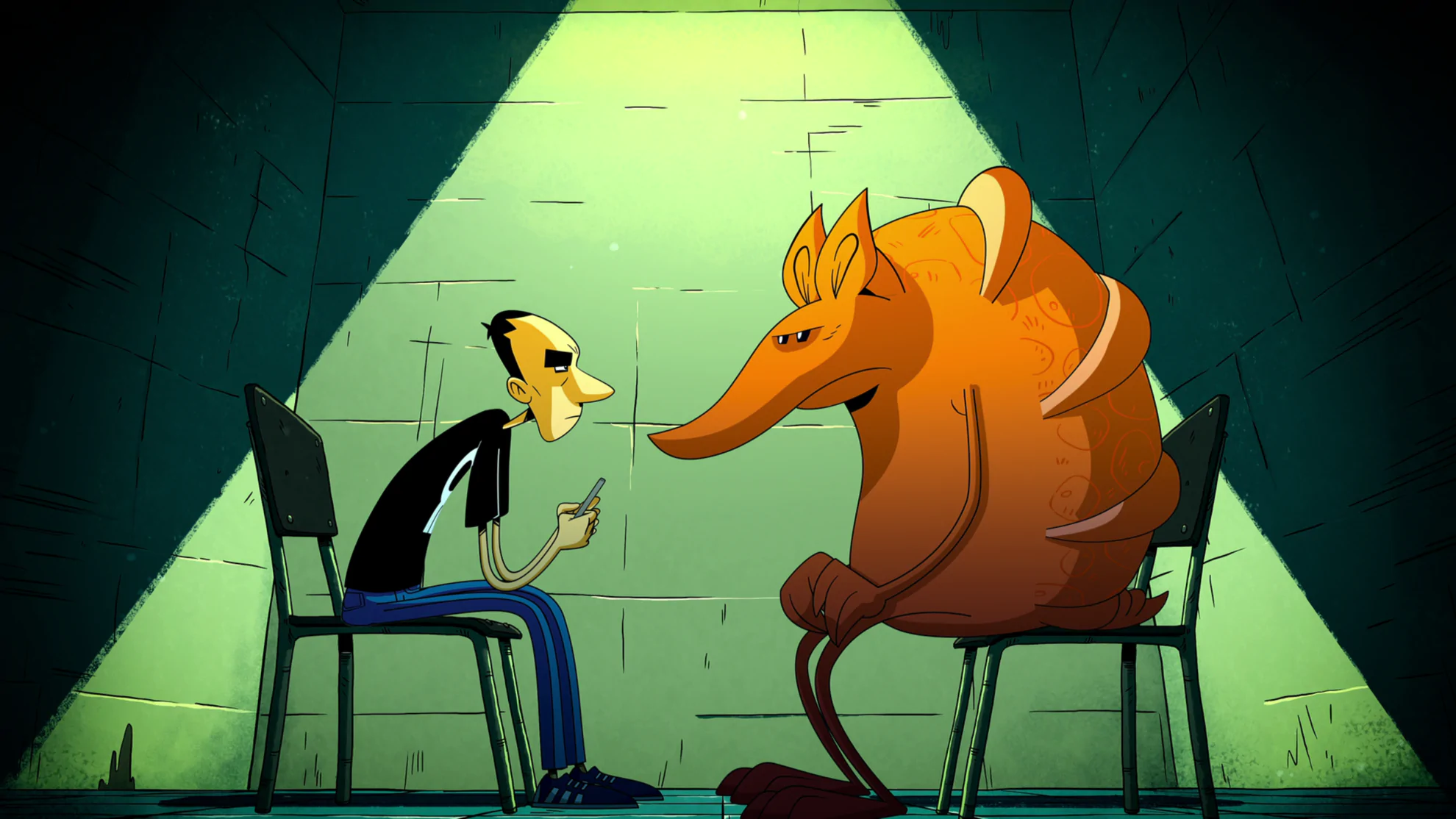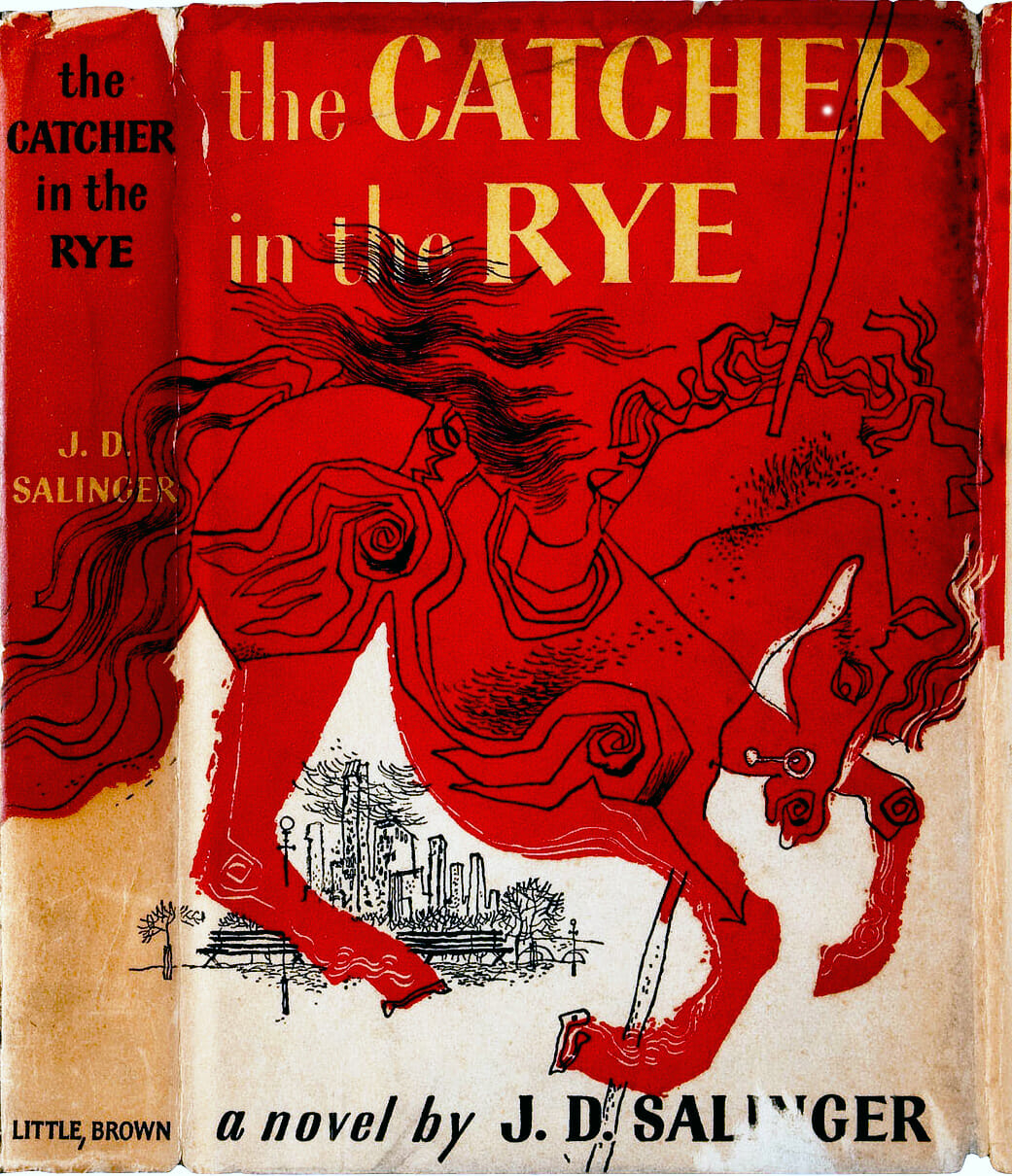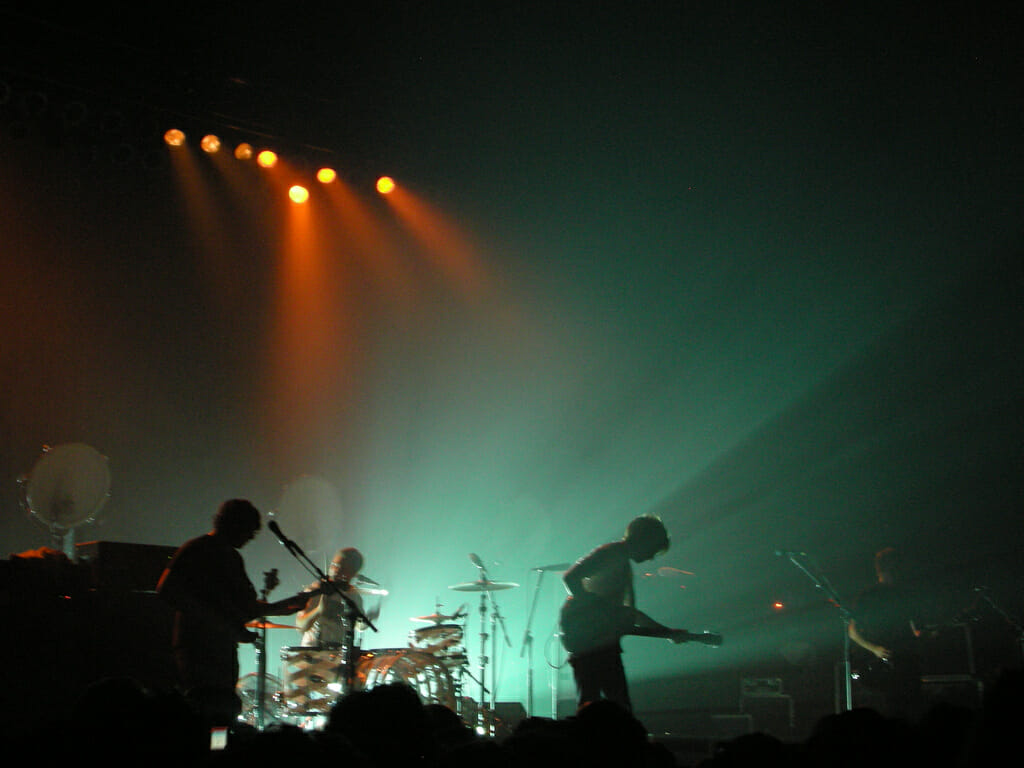
Tear along the dotted line by Zerocalcare | Being a black belt in dodging life
Creator
Year
Country
Seasons
Runtime
Genre
Music by
People read, listen to and even create a lot of stories throughout their lives. There is one they hardly understand, though: their own. Tear along the dotted line is the first animated series by the Italian cartoonist Zerocalcare (aka Michele Rech) and talks about the stories people tell themselves day by day. The experiences one goes through, traumatic or joyful, build up their point of view on the world around them. Zerocalcare shares his own up-front. He is always the protagonist of his graphic novels, like in Kobane Calling or Forget My Name. The same happens in Tear along the dotted line, a recollection of memories involving Zerocalcare and a friend of his.
The series, available on Netflix, is quite different from other Italian animation products, usually addressing kids and teenagers. TV shows like Winx Club or Monster Allergy rely on strong fantasy/adventure elements. On the contrary, this series’ contents are rather intimate and the show is a dramedy. Topics like depression, unemployment, and the consequences of the economical crisis mark a step forward among Italian animation.
The story you tell yourself
Everyone engages in interior monologues with themself, at least from time to time. In the case of Zerocalcare, it mostly involves doubts and uncertainties, endless and obsessive. To express them, he talks with a big, imaginary armadillo, his conscience like an existentialist version of Jiminy Cricket from Pinocchio. In this way, the episodes of Tear along the dotted line unfold showing Zerocalcare trying to make it through life while questioning literally everything he says and does.
The story more or less follows the contents of his first graphic novel, The prophecy of the Armadillo. The plot focuses on the past relationship between Zero and Alice. It always lingered in something more than a friendship but never quite became a love affair. Even if the main story gains more and more traction, the narrative is made up of digressions, flashbacks, and fantasies. The indecision affecting the relationship of the two spreads in every scene, along with a feeling of inadequateness. All of this is put together with quotes and parodies of videogames, movies, ads and other products, a feature Zerocalcare and Leo Ortolani (Rat-man) mastered better than others in the Italian comics field.
The way Zerocalcare seems overwhelmed by how big and complicated life can be, recalls the scene of Novecento by Alessandro Baricco where the protagonist decides to keep on living on a ship, instead of exploring a vast and hectic world. However, deciding not to face the harshness of life means getting stuck in the same place for good. The fear of never advancing haunts Zerocalcare, but he equally fears getting out of his comfortable routine.
A smooth transition
Zerocalcare decided to jump into the world of animation in 2020 with a web series called Rebibbia Quarantine, available on YouTube. A first experiment and a chance to look into the pandemic from the viewpoint of his beloved neighborhood of Rebibbia, an area of Rome. Even then, it was clear that the transition from comics to animation, for him, was easy and almost natural.
His iconic mix of short stories, memories, and monologues – with Zero addressing the audience – suites perfectly an adaptation on screen. The cuts back and forth from different narrative styles make the rhythm more fast-moving than in the comics. The soundtrack adds another level of storytelling, where Zerocalcare relies on quotes and nostalgia as much as his stories do.
Moreover, the author wrote, directed, and also dubbed most of the characters in the show. In doing so, he also enhances his point of view of the story as a filter. He kept on using the Roman dialect, like in his comics, provoking something of a mild uproar in Italy, as many people deemed the lines hard to understand. An unexpected reaction considered the existence of successful shows set in dialect, like Gomorra. Besides, doing otherwise would have erased one of the main features of Zerocalcare’s style. A feature that’s hard to translate in other languages, even though the show has been released and appreciated in plenty of countries.
An author for everybody
Zerocalcare might be mostly talking to people equal in age. However, by tackling generational issues in an ironic and delicate way, he reaches out to other age groups too – as he had already done with his comics. Through pop-culture references and themes, filled with catchy humor, the show is able to adjust to different tastes. However, the most eye-catching element of Zerocalcare’s works is his own involvement in the stories. And even if he stresses any situation that could make him anxious, he also shows there is always a chance to see things differently, without indulging too much in our own fears.
Tag
Buy a ☕ for Hypercritic









